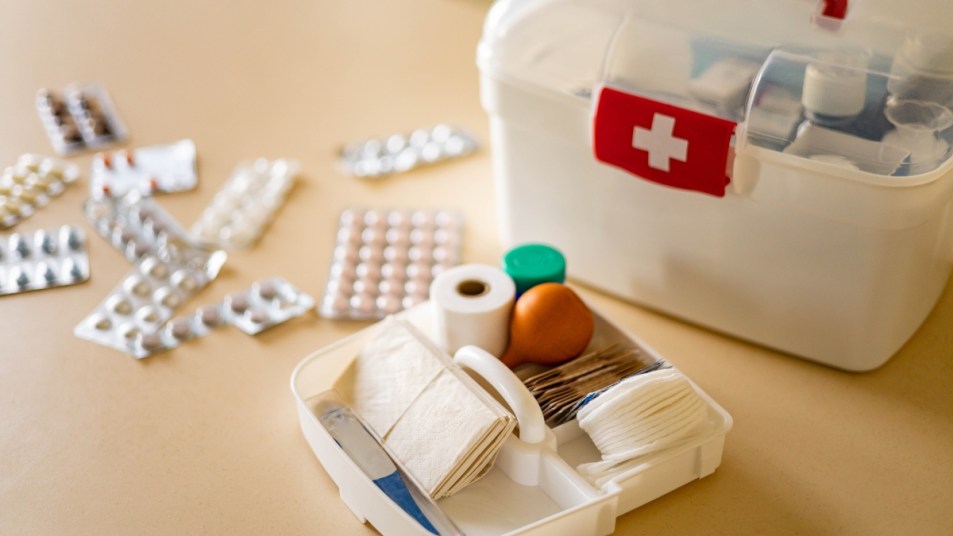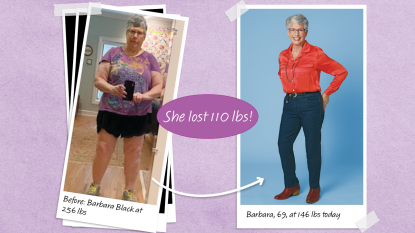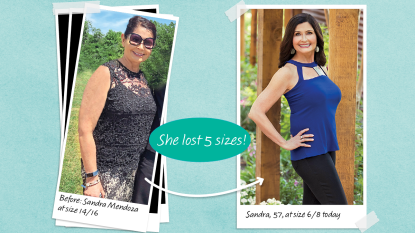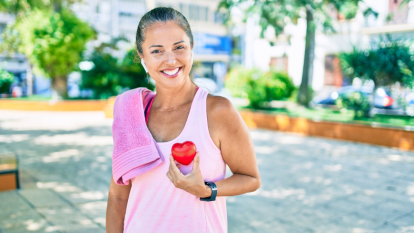How To Prepare for Major Storms if You’re Predisposed to Heart Conditions
A cardiologist gives tips on how to stay safe in severe weather.

When the threat of severe weather looms, what’s the first thing you do? You may make a mad dash to the store to stock up on milk and bread, or you might think, “Oh, another storm. It’ll be over in a few hours if it happens at all,” and do nothing. But planning appropriately can be the difference between thriving and barely surviving in potentially disastrous weather conditions. These situations can be made even more deadly if you have a heart condition.
To help you better prepare, we spoke to cardiologist Dr. Jayne Morgan about the dangerous health implications of underestimating severe weather’s impacts. Dr. Morgan is a cardiologist at the Piedmont Healthcare Corporation in Atlanta, GA, which is the largest healthcare system in the state — and she knows what it means to operate effectively in times of crisis. Here, Dr. Morgan explains how you can make a plan to protect yourself and your loved ones during weather emergencies.
How does severe weather affect health?
A shocking statistic: “When you have disasters, hurricanes, tornadoes, things to that effect, we see about a 22 percent increase in heart attacks within the first one or two weeks,” says Dr. Morgan. She explains that this bump is primarily due to the large numbers of people with pre-existing heart conditions dealing with the stressors of sheltering in place. But Dr. Morgan notes that the rise in cardiac trouble after natural disasters doesn’t stop there: “[People] may have to walk to more places because roads are closed. Climbing, hauling, maybe even cooking outdoors … those types of things would require a lot more physical labor. And so at about seven weeks, we see another bump in heart attacks, and generally, this is when people have begun to realize and grapple with big losses: Loss of life, loss of income, loss of jobs, loss of pets, those types of things.” The storm may have ended, but its effects continue to linger.
Why should women take extra care in monitoring heart attack symptoms?
As it turns out, women need to be extra careful when monitoring themselves for heart attack symptoms. Dr. Morgan says that our indicators differ from men’s, so it’s important to know the warning signs. “Women’s symptoms are often overlooked [because they’re more subtle] … which is one reason why women often seek medical care for heart disease later than men, and why the first heart attack for women is more fatal than for men,” Dr. Morgan explains.
She notes that women’s symptoms may not mirror the dramatic, crushing pain and fainting heart attacks that you see on TV — in fact, our symptoms can be easily mistaken for normal age-related aches and pains in the back, shoulder, or jaw. She also notes that a primary symptom for women is fatigue, but because many women are used to feeling tired, they don’t get medical attention for it. “You could actually be having warning symptoms of a heart attack, but they can easily be confused with any number of everyday aches and pains,” Dr. Morgan says. “You may ask yourself, ‘Why don’t I have any energy?’ You can think of 500 stressors that are weighing on you, when in fact, it’s equal to the crushing chest pain and shortness of breath that men often present with, which gets them to the hospital quicker. Women may delay that treatment because the symptoms are not as clear.”
Dr. Morgan also says that women delay treatment because they’re used to putting others first. “Often women put themselves last, especially if they have families,” she notes. “We take care of other people. We tend to not focus as much on ourselves. Women tend to be the caregivers — even working women in families. And so we have to make certain that we pay attention to even the subtle signs and symptoms of our bodies, because small changes could portend bigger problems.”
This all means that in the event of a disaster, women must be even more vigilant. “If your home has been hit by a tornado, hurricane, or earthquake, and you find that you are tired and have back pain, you’re not thinking that you have a heart attack; you’re thinking that you are feeling the stress of having to manage the situation,” says Dr. Morgan. But, instead of immediately attributing your pain to external factors, try to be mindful. In the words of tennis legend and breast cancer survivor Martina Navratilova, “self-care is not selfish.” It’s vital.
Factors To Consider Before Sheltering in Place
Sometimes, the safest thing to do in the event of an impending natural disaster is to evacuate. However, many people shelter in place anyway, whether it be because they don’t have access to resources that enable them to leave, or because they would simply rather stay home and “tough it out.” Here, Dr. Morgan lists two important things everyone should consider when remaining in the path of severe weather — especially if you suffer from a medical condition.
The aftermath. “It’s not a matter of whether or not you’re able to survive the event. But often, the fallout from a natural disaster could go on for weeks, and that’s the part that people are unprepared for,” Dr Morgan says. “[After an extreme storm,] there may be no access to drugstores, prescriptions, physicians, hospitals, roads, that type of thing … and then if you have a serious medical condition, like heart failure, poorly controlled high blood pressure, or a past heart attack, you may be at risk. It may become very difficult and challenging for you to survive in those circumstances, even if you survive the main event.”
The passage of time. “Some people have lived through a number of disasters. They know what to expect. If you’ve grown up in an area [where a lot of severe weather has happened], you certainly know how to manage it. But something that you’re not keeping track of as time goes by, is that you’re getting older,” Dr. Morgan points out. “So you say, ‘Oh, we’ve been through these before.’ Yes, you have. You went through it when you were five, when you were 15, when you were 24. But now you’re 65, so let’s think about that. And what does that mean? You’re lulled into a false sense of security. You’ve done it before. You’ve got a lot of experience. But the fact of the matter is you’re older; your body has changed in the way it’s going to respond to stressors.”
How To Prepare to Shelter in Place
Aside from being aware of all the potential risk factors, there are several things you can do before a storm to prepare and hopefully avoid medical emergencies. Here, Dr. Morgan shares two steps to take before severe weather strikes:
Stock up on your medications. “If you’re going to shelter in place, you need to make certain that you have a 30 day supply of all of your medications,” Dr. Morgan recommends. “If you’re going to run out before then, try to seek special permission from your physician. Let them know that you’re going to shelter in place and you’re going to need additional medications. Do not go without your medications and don’t plan for the event to be 24 or 48 hours, thinking you’ll be fine because you have a 10 day supply. These events are unpredictable.”
Get your first aid skills and supplies in order. “Think about taking a course in first aid skills,” Dr. Morgan suggests. And it’s not a bad idea to add a few tools to your standard first aid kit, too. “Aspirin, which you can use for a number of things, helps thin the blood if you’re having a heart attack, so that might be something that you [should have at home] if you’re going to ride out a disaster,” she says. It’s also important to make sure you have enough to eat and drink — she recommends storing up enough non-perishable food and fresh water for a minimum for five days. “Water is important because it can be easily contaminated and make you sick,” Dr. Morgan cautions. And drinking water isn’t the only water you need to think about; Dr. Morgan notes that floodwaters may be contaminated, which can bring about a host of issues, like disease, mosquitos, and mold, so it’s a good idea to have insect repellent, and medication for any asthma and pulmonary conditions that these factors can aggravate. Dr. Morgan additionally notes the importance of having a reliable, dedicated power source for any medical equipment. “Remember, you don’t necessarily have access to medical care in these situations,” she says.
In taking all of these precautions for worst case scenarios, it’s easy to feel afraid. Fear is a natural human response — but don’t allow it to paralyze you into inaction. Having knowledge and staying prepared can help mitigate risk and loss, which should give you confidence. Stay aware, and you could help save lives — including your own.













